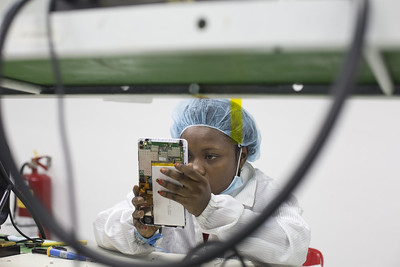Yesterday, I wrote about the growing need for workers in new technology sector jobs. At the same time demand is rising for workers, enrollment in Science, Technology, Engineering and Math (STEM) classes is declining. Experts predict that by 2030, as many as 1.4M technology sector jobs could be unfilled because there is simply no appropriately trained workforce capacity.
It’s curious, therefore, that WCC has chosen to focus on building its portfolio of trade instructor training programs instead of building workforce capacity for badly needed technology sector workers. Similarly, WCC has chosen to focus on attracting out-of-district and out-of-state students with deeply discounted tuition – which in-district students don’t get. The students who benefit from our largesse will never set foot in Washtenaw County, yet we magnanimously subsidize their tuition so they can take advantage of the educational resources we have built.
Our elected Trustees haven’t asked any meaningful questions about how this strategy of underwriting the education of people with no connection to Washtenaw County will benefit us. What do we – the taxpayers – get out of this? We pay for others to use our educational facilities; yet this approach doesn’t benefit Washtenaw County students, residents, or employers. It builds no workforce capacity nor develops any talent here. This is a private party that we get to pay for and clean up after but aren’t invited to.
It would be one thing if WCC had a great retention rate among its first year students, but it doesn’t. One-third of WCC’s full-time students didn’t return for their second year of studies. Two-thirds of WCC’s part-time students disappeared after their first year.
Build workforce capacity by correcting retention, graduation problems
Twelve percent of full-time students who enrolled at WCC for the first time in 2017 graduated in 2019. That number jumped to 27% in 2020 and increased to 35% in 2021. Given four years, slightly more than one-third of WCC’s full-time students fulfilled their graduation requirements – which means that two-thirds did not.
WCC graduated just 11% of its Black students from the 2018 cohort over three years. Nine out of ten Black students who started taking classes full-time in 2018 did not complete a degree. What is the associated economic impact to Washtenaw County’s workforce capacity of graduation only one out of ten Black students? What is the long-term economic fallout to the students, who left without a degree?
Doesn’t it make more sense to focus the institution’s resources on increasing the school’s retention and graduation rates? Shouldn’t our community college be focused on our residents, and our needs? Shouldn’t WCC focus on building the workforce capacity of Washtenaw County before worrying about non-resident students and visitors?
Photo Credit: US Agency for International Development (USAID), via Flickr


















